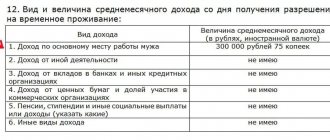This publication is a short overview guide (module) to court cases on establishing a legal fact - being a dependent, in which legal positions have been developed on issues that have not been resolved by the highest courts. Regulatory acts.
Civil Procedure Code of the Russian Federation, Civil Code of the Russian Federation, Housing Code of the Russian Federation, Investigative Committee of the Russian Federation, Tax Code of the Russian Federation. Law of the Russian Federation “On the right of citizens of the Russian Federation to freedom of movement, choice of place of stay and residence within the Russian Federation”, Federal Law “On labor pensions in the Russian Federation”
A dependent is a disabled person, most often with a disability group. Temporarily unemployed able-bodied people are not dependents.
Art. 264 of the Civil Procedure Code of the Russian Federation directly provides for one of the types of legal facts - the fact of being a dependent, on which the emergence, change, termination of personal or property rights of citizens depends.
The mere fact of being a dependent is not subject to any registration , which creates the need for its special establishment. In most cases, cases of establishing the facts of being dependent are within the jurisdiction of the district (city) court. Despite the fact that being a dependent can be confirmed by social security authorities or the district administration at the applicant’s place of residence, often the relevant authorities do not have sufficient information, which entails the need to go to court.
Art. 267 of the Code of Civil Procedure of the Russian Federation provides, as a mandatory condition for applying to the court with an application to establish a legal fact in a special proceeding, the need to indicate the specific purpose for which the applicant needs to establish the required fact. It should be noted that in relation to cases of establishing the fact of being a dependent, this rule becomes especially important. This is explained by the fact that the concept of dependency as a fact of legal significance in each branch of the legislation of the Russian Federation has its own fundamental features. Accordingly, it is the purpose of establishing this fact that largely determines the subject of proof and the range of necessary evidence , and also affects the circle of interested parties involved in the case.
Establishing the fact of being a dependent may meet one of three purposes. This may be necessary for:
1. receiving an inheritance, 2. for assigning a pension in connection with the death of the breadwinner, 3. for compensation for damage in connection with the death of the breadwinner.
Let us dwell on the criteria for determining the fact of being a dependent in each of these situations.
Dependents' rights to inheritance
Dependency means living at the expense of a breadwinner when you are unable to support yourself due to various reasons - old age, disability, childhood, etc.
Dependents of the deceased testator can be divided into two categories:
- relatives of the deceased;
- persons who are not relatives of the deceased.
Relatives of the deceased have the right to accept inherited property if the fact of dependency is established, regardless of the fact of living with the deceased in the same living space.
Persons who are not relatives of the deceased can claim an inheritance only if they lived together with the deceased during the last year before death (Clause 2 of Article 1148 of the Civil Code of the Russian Federation).
In addition, these persons must live off the income of the deceased during the last year before death.
Dependents of the deceased can claim his property simultaneously with the main line of heirs accepting the inheritance. Regardless of the testamentary will, such dependents receive the right to half of the property that would be due to them upon receipt of the inherited property by law.
For example, the deceased testator left two sons and one citizen who lived with the deceased, who was not a relative and was a dependent for the last two years before the death of the testator. In this case, if the deceased did not make a will, the dependent and sons belonging to the first line of heirs will each receive 33% of the inheritance.
If there is a will dividing all the property of the deceased in half between the sons, the dependent has the right to challenge up to half of the property due to him, in which case he will receive 16.5% of the inheritance, two sons - 41.5% each.
What is the point of establishing that a person is a dependent?
The established order is always determined by the ultimate goal, what exactly the disabled citizen is trying to achieve:
- allocate a share to yourself in the property of the deceased breadwinner or increase the size of the existing one;
- the appointment of a permanent cash benefit associated with the loss (death) of a breadwinner;
- compensation for damage due to the death of the breadwinner;
- mitigation of punishment when a citizen is convicted of a criminal or administrative crime;
- the need to transfer the dependents of the arrested breadwinner to a third party;
- obtaining government privileges (for example, social benefits) for relatives of a military personnel;
- extension of an existing residence permit;
- acquisition of citizenship.
The fact of dependency itself must be established by the court after examining the documents provided by the citizen. Most often, this procedure is necessary when the circle of first heirs is established and the inheritance left by the deceased is distributed. Indeed, according to the law, dependents (who were previously looked after by the deceased) have the right to claim the capital left to them as heirs.
Who can be considered a dependent
Persons who meet the following criteria can be recognized as dependents:
- lack of own income (or small amount);
- lack of own living space;
- existence of a fact of incapacity;
- receiving a significant portion of one's livelihood from the breadwinner.
A significant portion can mean a different share of income, the main thing is that it is important for the normal living of the dependent. The court determines the fact of being a dependent on an individual basis, taking into account all related factors and specific amounts of income.
For example, if the only income of a disabled dependent is his pension of 4,000 rubles, and the allowance from the deceased breadwinner was 10 - 15 thousand rubles, then the court recognizes the fact of dependency.
If the alleged dependent's income:
- less than the cost of living in the region by a small amount;
- comparable to financial assistance from a breadwinner;
- received in the course of legitimate work activity;
then the court may not recognize the applicant as a dependent, despite the fact that the material allowance received from the breadwinner exceeds the applicant’s own income.
The fact that there is no living space increases the chances of receiving dependent status, since in this case an amount equal to the average rental price in the region of residence of the dependent can be deducted from the applicant’s income.
For example, a citizen who has an income of 15,000 rubles and has his own housing cannot be recognized as a dependent, and a resident of a large city without personal housing with a similar income comparable to the average rent can be recognized as a dependent of his breadwinner, since his own income is not enough for survival.
What is dependency and who is a dependent?
Dependency is receiving financial assistance from another person. Moreover, such assistance is the main source of livelihood. Dependency can also occur when material assistance is not the only source of livelihood. But it should be the main source.
Thus. a dependent is a disabled citizen who is supported by other persons. The most common examples of dependents are pensioners (receive assistance from the state in the form of a pension) and minor children (receive maintenance from their parents or persons replacing them (in some cases from the state).
In some cases, dependency is assumed without confirmation by relevant documents. For example, the Federal Law “On Insurance Pensions” talks about the expected dependency of minor children. And it does not require additional evidence. In other cases, to confirm dependency and recognize a person as a dependent, you will have to go to court. Or establish the fact of dependency out of court.
Establishing the fact of dependency
The fact of dependency is subject to establishment in court, in accordance with Art. 264 Code of Civil Procedure of the Russian Federation. To do this, the potential dependent (or his representatives) needs to apply to the general court at his place of residence.
The procedure for recognizing the fact of dependency includes the following steps:
- Collection of documents and evidence of dependency.
- Filing a claim.
- Consideration of the case at a meeting and making a decision.
- Registration of rights to the property of the deceased on the basis of a court ruling recognizing the plaintiff as a dependent of the deceased.
In some cases, in order to receive a share in the inheritance, it is necessary to re-apply to the judicial authorities with an application for receipt of the inheritance based on the received status of a dependent. This occurs in cases where the relatives of the senior heir or the persons indicated in the will have already taken possession of the inherited property.
To simplify the procedure and save time, it is permissible in one statement of claim to indicate a request to recognize the plaintiff as a dependent and a requirement to obtain the right to the appropriate share in the inheritance upon receipt of the appropriate status.
It is important to take into account that the court accepts for consideration an application to recognize the plaintiff as a dependent only if it is impossible to establish this fact outside of the court hearing.
This means that the plaintiff must, before going to court, try to obtain the status of a dependent and the due share in the inheritance by mutual voluntary agreement with the heirs of the main priority, which is called upon to receive the property of the deceased. If all legal heirs agree with the dependent’s share, the heirs turn to a notary and receive rights to the inheritance.
It is necessary to go to court to obtain dependent status in cases where:
- legal heirs do not recognize the status of a dependent and refuse to share the inheritance with him;
- the legal heirs formalized the right of ownership of the real and movable property of the deceased.
The statement of claim is drawn up on A4 paper in free form and contains the following information:
- name of the circulation authority;
- Full name, passport and contact details of the applicant;
- registration address and actual residence of the applicant;
- terms and circumstances of dependency;
- proof of dependency;
- Full name of the breadwinner and his residential address;
- amount and source of own income;
- the amount of assistance received from the breadwinner monthly.
The application begins with a listing of the circumstances of the case, followed by a request to recognize the status of dependent due to the impossibility of establishing this status in another legal way, the obstacle to legal heirs and the absence of a regulated legislative procedure for obtaining dependent status out of court.
As circumstances of dependency, it is necessary to provide the amount of monthly income received from the deceased breadwinner for as long as possible (but not less than a year). If funds were transferred through commercial banks, then it is necessary to order a bank statement of all transfers made.
If the plaintiff lived in the living space of his breadwinner, then it is necessary to describe in detail the life and expenses of the residents, preferably with the testimony of witnesses. Witnesses can be both relatives and neighbors of the plaintiff.
Download the application for establishing the fact of being a dependent (sample)
Let's sum it up
So, there are many life circumstances in which it is necessary to prove dependency. Jurisdiction: city or district court. When going to court, you will need to draw up a statement, attach a package of evidence to it, and, if necessary, use the help of witnesses.
In order to prove in court that you are considered a dependent, you may need professional legal assistance. A specialist will help you write a competent application, collect evidence and papers. All this increases the likelihood that the court will accommodate the applicant halfway and satisfy his demands.
Required documents
A package of documents should be attached to the statement of claim:
- copy of the passport;
- receipt for payment of the court fee (300 rubles);
- extract from the passport office regarding registration;
- documents proving attempts at pre-trial actions;
- certificate of income for the last 12 months;
- a copy of the will of the deceased;
- certificate of incapacity or disability;
- certificates from the registry office proving the presence of family ties with the deceased breadwinner (if any).
Income certificates can include both documents from the tax service and certificates of receipt of a scholarship, disability pension, etc.
As a certificate confirming incapacity for work, it is necessary to submit a document of a disabled person or a conclusion from a medical commission.
It is important to take into account that in case of temporary incapacity for work, it is impossible to obtain the status of a dependent, since the inability to work is permanent and is not considered a basis for receiving an inheritance.
If the applicant was previously declared legally incompetent and was in the care of the deceased, then the applicant’s representatives also provide a copy of the court decision limiting or depriving the plaintiff of legal capacity.
Appeal to the Supreme Court
But the matter did not end there: Tatyana Viktorovna appealed to the Supreme Court.
It turned out that there was an application to remove the judge from the case, because Vladimir Fedorovich was familiar with many judges in the city, which meant that the judge leading the case could not be absolutely impartial.
“In an appeal against the decision of the court of first instance - the Industrial District Court of Smolensk, filed with the Smolensk Regional Court, Korbacheva T.V. also pointed out the presence of circumstances raising doubts about the impartiality of the Industrial District Court of Smolensk when resolving her claims, and the impossibility, under such circumstances, of making an objective and legal decision by this court of first instance.
When considering the case on appeal, Korbacheva T.V. on the decision of the Industrial District Court of Smolensk in the court of appeal - the judicial panel for civil cases of the Smolensk Regional Court Korbacheva T.V. and a representative of the Judicial Department at the Supreme Court of the Russian Federation again filed petitions to send the civil case to the Supreme Court of the Russian Federation to resolve the issue of transferring the case for consideration to the court of appeal of another constituent entity of the Russian Federation, since the defendant in the case is the Smolensk Regional Court, and the spouse Korbacheva T.V. Until the moment of his death, he was a judge of the Smolensk Regional Court. Korbacheva T.V. the judges of the judicial panel for civil cases of the Smolensk Regional Court were also challenged for the reason that they are colleagues of her deceased husband V.F. Korbachev, and therefore it is impossible for them to consider the case for objective reasons.”
Making a decision by the court
The court evaluates the circumstances of the case and makes a decision based on the total information about the plaintiff and the deceased breadwinner, as well as their income, lifestyle and witness testimony.
According to Art. 1148 of the Civil Code of the Russian Federation, there are the following signs of dependency that guide the court when making a decision:
- the plaintiff’s incapacity for work on the date of death of the breadwinner;
- receiving the bulk of material support from the breadwinner;
- being supported by a breadwinner for at least 12 months;
- living together with the breadwinner (for persons who are not relatives of the deceased).
An additional circumstance that equates a citizen living with a deceased person to a dependent is the fact that such a dependent fulfills the responsibilities of caring for an elderly or infirm breadwinner.
For example, if a citizen who lived with the deceased did not need his financial support, but cared for the dying person during the last 6 months before his death on his own initiative, then such a citizen is equated by the court to a dependent and can receive part of the inheritance of his deceased ward.
Under these circumstances, the court may reduce the period of mandatory residence with the breadwinner before his death from one year to 6 months.
Evidence of dependency may be the social status of the plaintiff, indicating his inability to provide for himself, for example:
- children under 16 years of age;
- disabled people;
- old age pensioners;
- persons with mental illness.
It is important to take into account that student children can be recognized as dependents by age up to 18 years. Age pensioners are considered to be men over 60 years of age and women over 55 years of age.
The court also takes into account the degree of need of the dependent for the living space of the deceased breadwinner and the need for such living space of the legal heirs.
If the apartment of the deceased breadwinner was the only place of residence of the dependent, and the relatives do not need to improve their living conditions, the court may decide to bequeath the living space of the deceased to the plaintiff, even if the share of such living space from the total amount of the inheritance is greater than the mandatory share due to the dependent (clause 4 of Art. 1149 of the Civil Code of the Russian Federation).
It should be remembered that the court in most cases denies the plaintiff to obtain dependent status and the right to receive a share in the inheritance if:
- the plaintiff was deprived of legal capacity at the request of the social security service after committing serious criminal offenses;
- The plaintiff, during the life of the deceased breadwinner, committed illegal actions, which I allow him to be considered an unworthy heir, according to Art. 1117 of the Civil Code of the Russian Federation.
A plaintiff who meets all the criteria for the status of a dependent, but has committed actions during the life of the breadwinner that impede the fulfillment of the will of the breadwinner, or create a threat to his life and/or health, or prevent the distribution of the inheritance in a legal manner, cannot inherit the property of his breadwinner, either by law, not by will.
Recognition as a dependent for the purposes of receiving a survivor's pension
If the right of disabled dependents to compensation for damage in the event of the loss of a breadwinner is not made dependent on whether they are in any degree related or related to the deceased breadwinner (see below), then the law “On Insurance Pensions” defines the circle of persons who are recognized as disabled members of the family of the deceased breadwinner and the list of these persons is exhaustive.
Thus, according to Article 10 of the Law of December 28, 2013 N 400-FZ “On Insurance Pensions”, disabled members of the family of the deceased breadwinner who were dependent on him have the right to an insurance pension in the event of the loss of a breadwinner...
For example, in the ruling of the Supreme Court of the Russian Federation dated July 25, 2016 N 18-KG16-53, the following was stated:
On January 1, 2015, Federal Law No. 400-FZ of December 28, 2013 “On Insurance Pensions” came into force.
According to Part 1 of Article 10 of the Federal Law “On Insurance Pensions”, the right to an insurance pension in the event of the loss of a breadwinner is granted to disabled family members of the deceased breadwinner who were his dependents (with the exception of persons who have committed a criminal act that resulted in the death of the breadwinner and was established in pre-trial okay).
Part 2 of Article 10 of the Federal Law “On Insurance Pensions” defines the circle of persons who are recognized as disabled members of the family of the deceased breadwinner, including the parents and spouse of the deceased breadwinner, if they have reached the age of 60 and 55 years (men and women, respectively) or are disabled (clause 3 of part 2 of article 10 of the Federal Law “On Insurance Pensions”).
Family members of a deceased breadwinner are considered dependent on him if they were fully supported by him or received assistance from him, which was their constant and main source of livelihood (Part 3 of Article 10 of the Federal Law “On Insurance Pensions”).
Thus, the legislator has established a circle of persons who are subject to compulsory pension insurance in connection with the loss of a breadwinner, the list of which is exhaustive, not subject to broad interpretation and includes persons whose personal and property relations are inextricably linked with their status in marriage or kinship.








